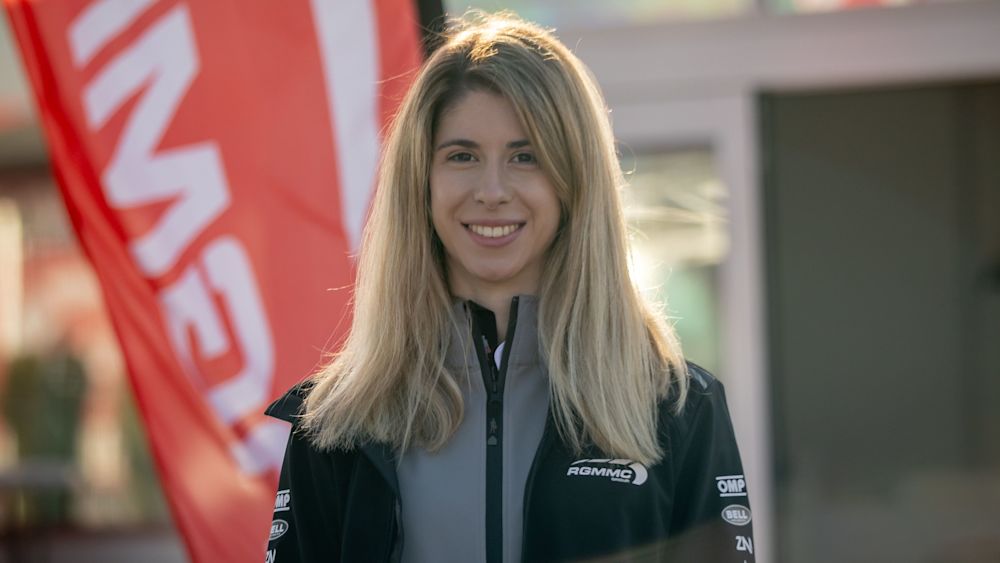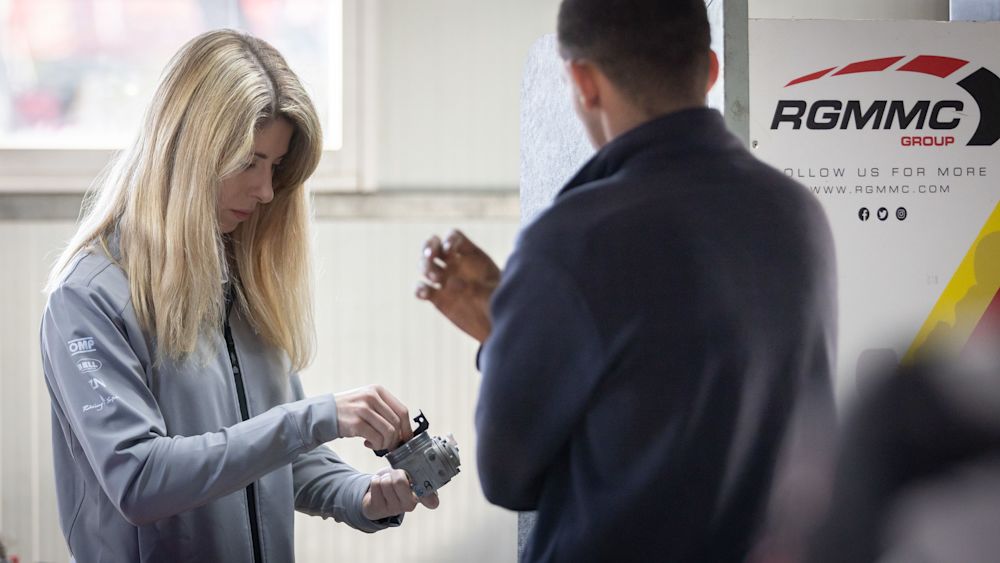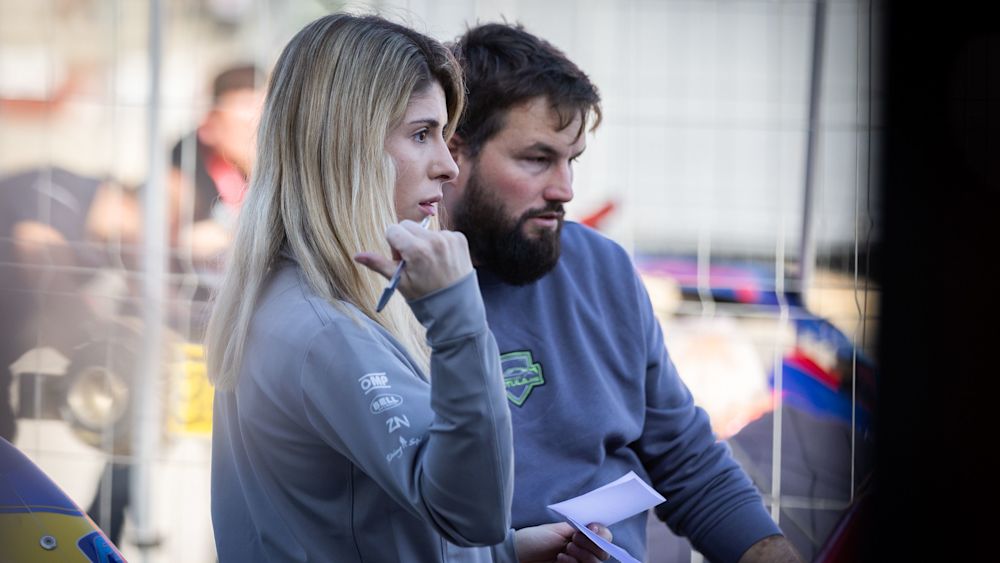Feature
Career Spotlight: Meet Patricia Montesinos, RGMMC’s Chief Technical Control Delegate

As the third round of the Champions of the Future Academy season gets underway this weekend, we spoke to Patricia Montesinos, who acts as Chief Technical Control Delegate for RGMMC (the promoter of COTFA). We learn more about her important role in maintaining fair play and driver safety for our Career Spotlight series.
Every hour of Montesinos’ work revolves around the smallest of details. Technical Control Delegates, also known as scrutineers, are responsible checking over the karts and the drivers’ equipment. Assessing everything from their front bumpers to the individual engine pieces, to the helmets and overalls, it’s their duty to make sure all components comply with the regulations.
“The first responsibility is the security of the driver by checking the helmet and checking their clothes,” she notes. “Later when all that is good and that the driver can take part in the race, I need to check that the engine of the kart is the same and that it’s good with the regulations.”
Leading the wider scrutineering team, she knows how critical it is that everyone is on the same page from the start, as any ambiguity can cause confusion further down the line.
“Normally, we’ll have one person with the report,” she explains. “The other person is outside looking at the little problems or whatever issues the teams have, to speak with them and help them. Later when that’s finished, they’ll be checking the karts against the rules. For example, that the engine is complete and the kart meets the required weight.
“When there’s a problem with the weight or the parts, I make a report and that’s sent to the Stewards. The Stewards can then call me or my partners to find out why it’s wrong and so they understand the problem.”

Hands on in her role, Montesinos’ love for detail is a huge asset, with plenty of mechanical work taking place under her watchful eye. However, no rulebook can plan for every single eventuality or minor tweak made, so she recognises the importance of understanding the wider context of why those rules exist when potential loopholes arise.
“I prefer to check the engines, I love this and it’s the most interesting for me,” the Spaniard notes. “But I also like to speak with the young karters and I think it’s important to speak with them to let them know ‘okay, you’ve had a crash or you’ve lost, but it’s no problem because you can make another race and learn.
“The kids, the parents and the mechanics always have questions, whether it’s checking their helmet or wanting to know if this is possible or if something is wrong so they don’t have any problems later. I spend a long time reading the regulations because when a driver or mechanic comes to ask you a question before the race, it’s so they don’t have any problems later.
“If I make a mistake and say, ‘this is correct, don’t worry’ and then when they’ve finished the race, I check and it’s wrong, they’ll say ‘sorry, yesterday you told me it’s okay. Why now is it wrong?’ So, I try to learn more so I don’t have any problems with this.”
She adds: “I think the first thing is to understand the machinery you’re looking at — whether it’s a rally car or a kart. You need to understand what work can be done and who can do it. If you only look at the regulations to know if this is wrong or not, but when a change is not in them, you don’t know if this little thing is wrong or not. You need to understand why you do this and why you don’t do something else.
“It’s a big responsibility because when you have a crash, the Race Director calls you to see if it’s possible for the driver to restart the race. Then, you need to go and speak with the driver and tell them that they can’t make the next race, it’s difficult.

“In a situation where you have more stress, for example, if it was raining at the moment. You change more things on the kart and you need to go outside to look at what the mechanics are changing. When you’re looking, you need to understand what they need to change and does it fit with the regulations or not. It’s a little complicated.”
Since starting out in local karting events in her native Spain eight years ago, Montesinos has seen the landscape for women in motorsport steadily shift across all levels. Working alongside Joana Sousa Falcão, RGMMC’s Head of Race Control, the two women are setting an example to the ever-growing number of young, female karters.
READ MORE: Career Spotlight: Meet Joana Sousa Falcão, RGMMC’s Head of Race Control
“When I started years ago in the Spanish Championships, you’d go to the different tracks and you’d see one or two women normally,” she reflects. “Now you notice more women at the other tracks.
“You look now at the drivers and we have a lot more girls. I think it’s important that the little girls are looking at the women that work in motorsport, not only for the drivers and mechanics, and see that this woman is here, so I can be.”
Although motorsport comes with its challenges, Montesinos knows what it takes to succeed. Whilst you might face setbacks along the way, she believes that each provides a valuable lesson to grasp and grow from.
“If you like this world, you work very hard,” she summarises. “When you have any problems, don’t worry because it’s one race. In the next race you’ll learn more about it and won’t have the same problem, you’ll have a different problem but you’ll learn for the future.”